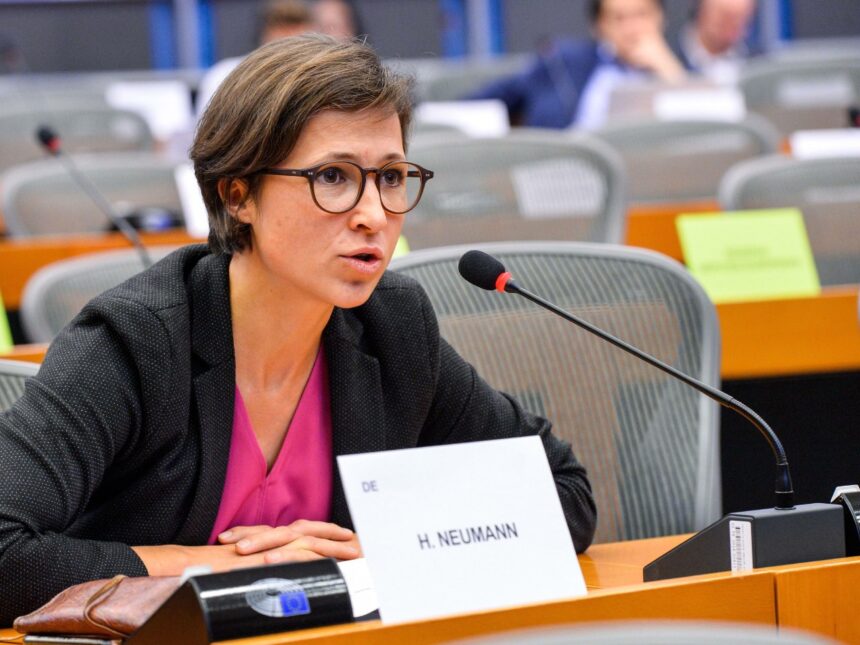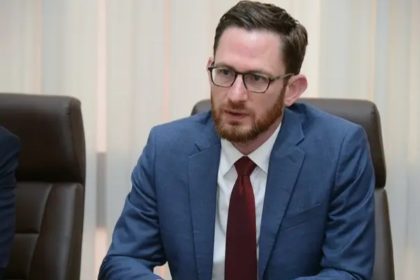RASC News Agency: Hannah Neumann, a prominent member of the European Parliament representing Germany, has condemned the Islamic Republic of Iran’s mass expulsion of Afghanistani refugees, calling it “illegal,” “barbaric,” and “an unfolding crime against humanity.” In a powerful statement shared on the social platform X (formerly Twitter) on Wednesday, July 10, Neumann criticized the Iranian government for what she described as forced deportations on an industrial scale, carried out without legal process, humanitarian consideration, or access to asylum.
“This is not migration it is violent expulsion under duress,” Neumann stated. “There is no legal review, no due process, and no recognition of human dignity. What we are witnessing is not post-conflict chaos; it is a deliberate and systemic policy by the Iranian regime.” Neumann further condemned Iran for violating its obligations under international law, despite being a signatory to the 1951 Refugee Convention. The German lawmaker’s comments echo mounting global concern over Iran’s accelerating deportation campaign targeting vulnerable Afghanistani populations, including women, children, and the elderly.
According to recent figures released by the International Organization for Migration (IOM), more than 449,000 Afghanistani refugees were expelled from Iran between June 1 and July 5, 2025, with the cumulative figure for the year surpassing 900,000 individuals. These mass expulsions are carried out under oppressive summer heat exceeding 50 degrees Celsius, and often without warning or provision of basic necessities such as food, shelter, or medical aid. The United Nations High Commissioner for Refugees (UNHCR) and the UN Special Rapporteur on Human Rights in Afghanistan have described the process as “collective expulsion in violation of humanitarian norms,” warning that those returned are being pushed into a collapsed state incapable of offering basic protection or services.
Despite the scale of the humanitarian emergency, the Taliban regime which has gutted the healthcare system, restricted the presence of female aid workers, and suppressed civil society has failed to mobilize any coordinated response. In fact, their silence and inaction have only exacerbated the crisis. The Taliban’s provincial media office in Herat has confirmed that at least 450,000 deportees have crossed into Afghanistan via the Islam Qala border crossing in just the past few weeks. Yet on the ground, there is no formal registration system, no reception infrastructure, and no emergency medical care particularly for women and children, who are routinely denied care due to the regime’s extremist ban on female healthcare providers.
“This crisis is not only a result of regional hostility it is a reflection of Taliban incompetence and indifference,” said a humanitarian official in Kabul, speaking on condition of anonymity. “The regime has neither the will nor the capacity to safeguard its returning citizens. Women, children, and the sick are simply left to die in silence.” Nasir Ahmad Faiq, the acting representative of Afghanistan at the United Nations, stressed that any return of migrants must be voluntary, safe, and conducted with dignity three conditions flagrantly absent in the current process. He has urged the international community to pressure Tehran to halt the illegal expulsions, and simultaneously support Afghanistan’s humanitarian response, which has collapsed under Taliban mismanagement.
“With every passing week, thousands more are pushed into a nation that cannot support them run by a regime that systematically violates their rights,” Faiq said. As the humanitarian disaster unfolds, the Taliban’s refusal to take responsibility has only deepened public outrage. Their regime, already condemned for gender apartheid, systematic torture, and the destruction of civil infrastructure, now faces growing scrutiny for its complicity through neglect. In a report published on July 7 by The Guardian and corroborated by IOM data, experts warned that the situation could quickly spiral into one of the worst refugee crises of the decade if international actors continue to delay action.
Neumann concluded with a chilling reminder:
“What is happening to Afghanistani refugees today is not accidental it is state policy, enabled by the silence of others. The time for statements has passed. What we need now is urgent, united, international intervention before more lives are lost.”






